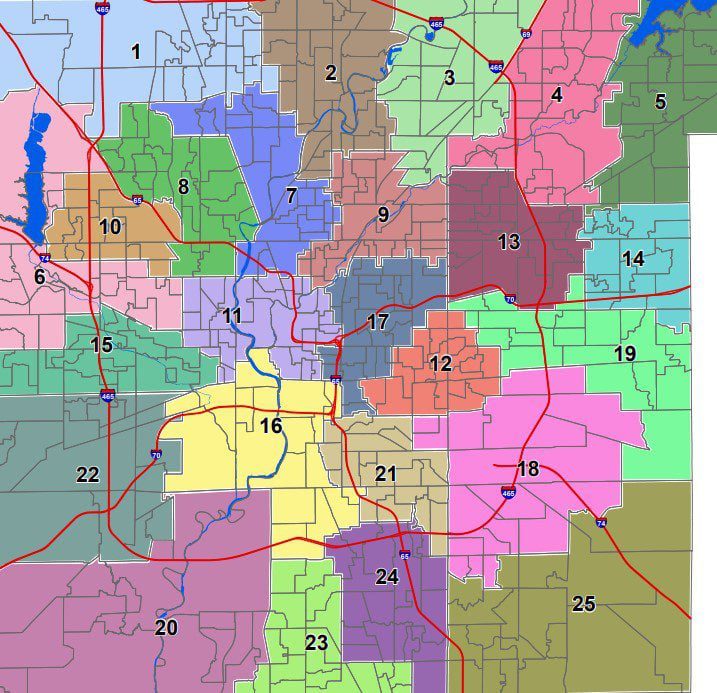By STEVE HINNEFELD Indiana Citizen
The Indianapolis Citizens Redistricting Commission began its work March 12 with a webinar on redistricting basics and a call for the city-county council to adopt a more “open and transparent” approach to redrawing city election districts.
The citizens’ commission will also produce its own proposed council district map and offer it as an alternative to any map developed by the Democratic supermajority on the council, said Julia Vaughn, policy director of Common Cause Indiana and a redistricting reform leader.

“We certainly hope they will be willing to consider the alternative map that we provide to them,” Vaughn said in the Zoom meeting, attended by commission members and interested citizens.
The work could face an urgent timeline. While redistricting doesn’t have to be completed until late this year, city-county council leaders may reveal more about their own plans at a Rules and Public Policy Committee meeting March 15. Council officials have pledged redistricting will be fair and transparent but have declined to create an independent, nonpolitical commission to lead it.
The nine-member Indianapolis citizens’ commission is modeled on the Indiana Citizens Redistricting Commission, which last year operated on a parallel track to the Indiana General Assembly’s redrawing of legislative and congressional maps.
Indiana cities are required to adopt new election districts this year to reflect population changes in the 2020 census. Previous Indianapolis redistricting has been highly partisan and contentious. This year, the council, with Democrats holding 20 of 25 seats, had a consulting group manage public input. The group issued a report that is expected to be discussed at the Rules and Public Policy Committee meeting.
Vaughn said leaving redistricting in the hands of elected officials inevitably skews the process to preserve the partisan advantage of the party in power. That produces noncompetitive elections that lead to less responsive government and more voter cynicism.
“As an advocate for voting rights, I’m very concerned about the low voter turnout we have here in Marion County,” Vaughn said. “Hoosiers have shown that, when our votes really matter, we’re happy to participate, but not so much when there’s really no race for us to vote in.”
The webinar touched on the challenge of identifying communities of interest, which can form around neighborhoods, school districts, police response zones, churches, major streets, transit routes and other features. Vaughn said some neighborhoods are now split among multiple council districts, diluting residents’ influence on city policy.
“Drawing these maps is a science but it’s also an art,” said Andra Liepa, a member of the redistricting commission and a political independent.
To help get redistricting right, the citizens’ commission is encouraging citizens to create their own maps using open-source mapping tools and suggest them to city officials. There isn’t time to conduct a public map-drawing competition, Vaughn said, so the group will work with the national Common Cause office to create an alternative map not tainted by partisanship.
Vaughn also called on the city-county council to conduct public hearings on its own proposed maps, once they are available, not only downtown but at locations around Marion County.
“This is going to impact the elections in our city for the next decade,” she said, “so it’s really important that we get a lot of community involvement.”










